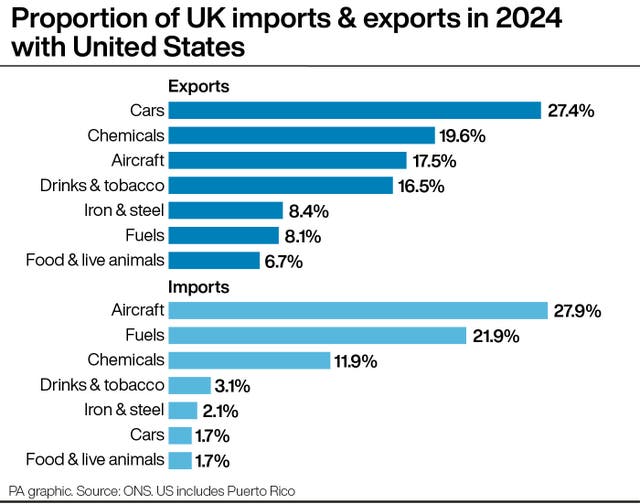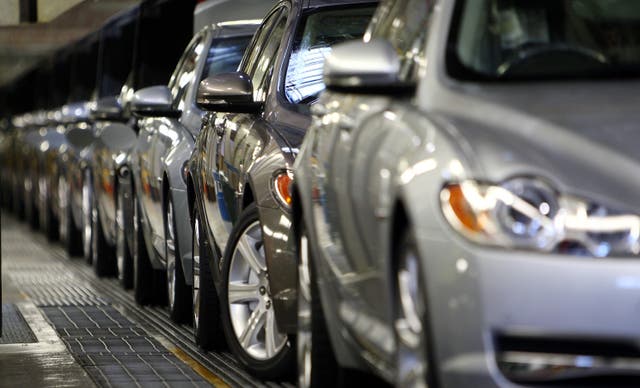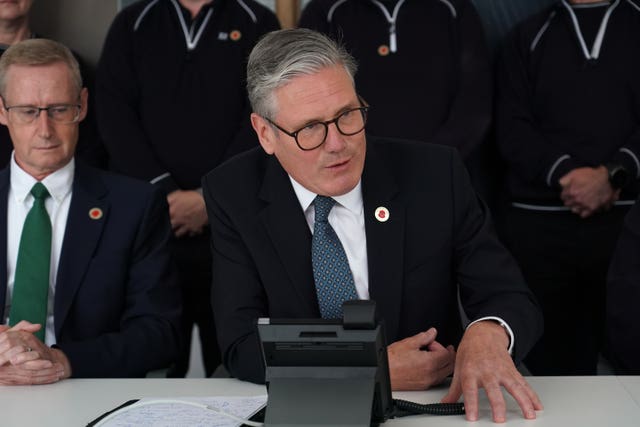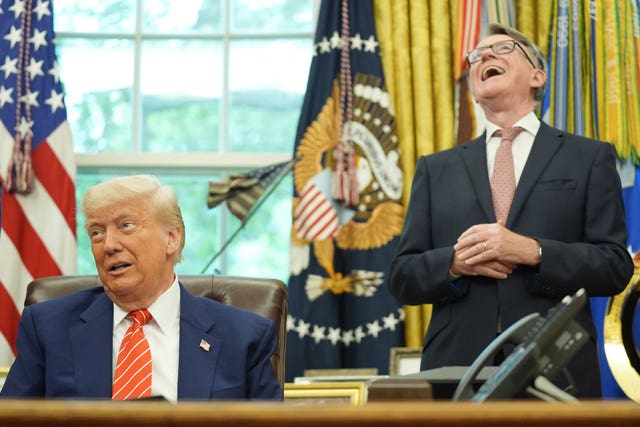Key points of the UK-US trade deal explained
The agreement is the first of its kind struck by the US since President Donald Trump came to power in January.

The details of an economic deal between the US and the UK to eliminate a series of tariffs impacting British businesses have been revealed.
The agreement is the first of its kind struck by the US since President Donald Trump came to power in January.
It offers the UK relief from tariffs on cars and steel, in exchange for giving America’s agricultural industry greater access to British markets.
Here, the PA news agency outlines some of the key points of the deal.
– Steel and aluminium tariffs
The US has removed the 25% tariff rate on UK steel and aluminium exports, reducing the trade barrier for these goods to zero.
Under the plan, the UK will “promptly” begin work to meet the United States’ requirements for securing supply chains of steel and aluminium products.
The agreement will offer a reprieve to Britain’s steel industry, which only weeks ago was on the verge of collapse.

– Car tariffs
American tariffs on British cars fall to 10% for the first 100,000 vehicles exported to the US. The parts needed for those cars will also receive special trade treatment.
Mr Trump had set the tariff rate on car exports to the US at 27.5%.
British car makers were also understood to have been intensely worried about the impact tariffs on their industry would have had if left unchecked.
– Other tariffs
A 10% baseline tariff on most goods, described by Mr Trump as a “reciprocal” tariff, remains in place.

Sir Keir Starmer said the US and UK were “hammering out further details to reduce barriers to trade” in other areas impacted by tariffs.
Talks over lowering the reciprocal tariffs are understood to be ongoing, but there is no deadline on how long they may continue.
The UK will also get preferential treatment in any further tariffs on national security grounds, Mr Trump announced as part of his drive to protect US business.
– Pharmaceuticals
Although British pharmaceuticals are not subject to tariffs from the US, Mr Trump has mulled over the idea of imposing trade levies on global imports from the industry.
Pending the results of compliance investigations, the countries have pledged to “negotiate significantly preferential treatment outcomes on pharmaceuticals and pharmaceutical ingredients”.
The UK also promised it would endeavour to “improve the overall environment” for pharmaceutical companies based there.
– Agriculture
Both the US and UK’s agriculture sectors will gain new access to one another’s markets under the deal.

UK beef farmers will be allowed access to the US market for the first time, joining a group of select countries such as Australia which have a similar arrangement.
British farmers have been given a tariff-free quota for 13,000 metric tonnes.
US farmers will, in turn, be granted new access to the UK, but Sir Keir insisted the Government had stuck to its “red lines” on farming standards.
Additionally, the UK will remove tariffs on 1.4 billion litres of ethanol, used to produce beer, which comes from the US.
– What non-tariff measures are in the deal?
Under the plan, the US and UK committed to working toward economic security by coordinating to “address non-market policies of third countries”.
They also pledged closer cooperation on keeping investments, exports and tech vendors secure by building on already closely aligned trade and investment security measures.
The US and UK have agreed to negotiate “ambitious” provisions for digital trades, a move which could impact services like online banking, financial tech, insurance or other industries that rely heavily on digital infrastructure.
Additionally, both sides agreed to better cooperate in tackling duty tax evasions on imports and exports.
– What is not in the deal?
There is nothing in the deal on US access to the NHS. Nor is there anything on concessions on a 2% tax on US big tech companies.

Business Secretary Jonathan Reynolds told reporters: “Just to be absolutely clear about what is not in this agreement. There is nothing in this agreement in relation to online harms or the Online Safety Act. There’s nothing in this agreement in relation to digital services tax. Nothing in the agreement in relation to the NHS.”
– The politics
The Prime Minister appears to have defied his political opponents who called for him to take a harder stance with the president.
“I know people along the way were urging me to walk away, to descend in a different kind of relationship. We didn’t. We did the hard yards. We stayed in the room. I’m really pleased to say to the workforce here and through them to the country, how important I think this deal is,” Sir Keir said following the deal.
Lib Dem leader Sir Ed Davey was among those who called for a more muscular approach with Mr Trump.
– Terms of the deal
Either side may cancel the deal by giving written notice to the other nation, according to the terms of the agreement.
Further details about how the deal could be reviewed, changed or terminated will be discussed during negotiations.





